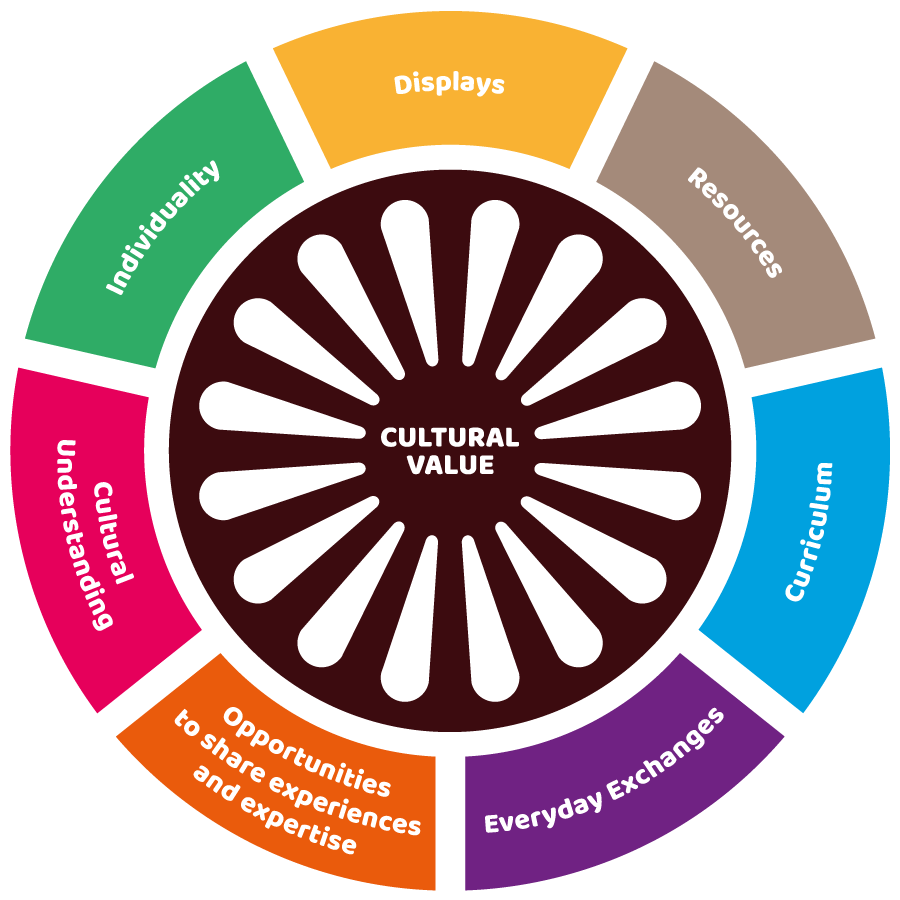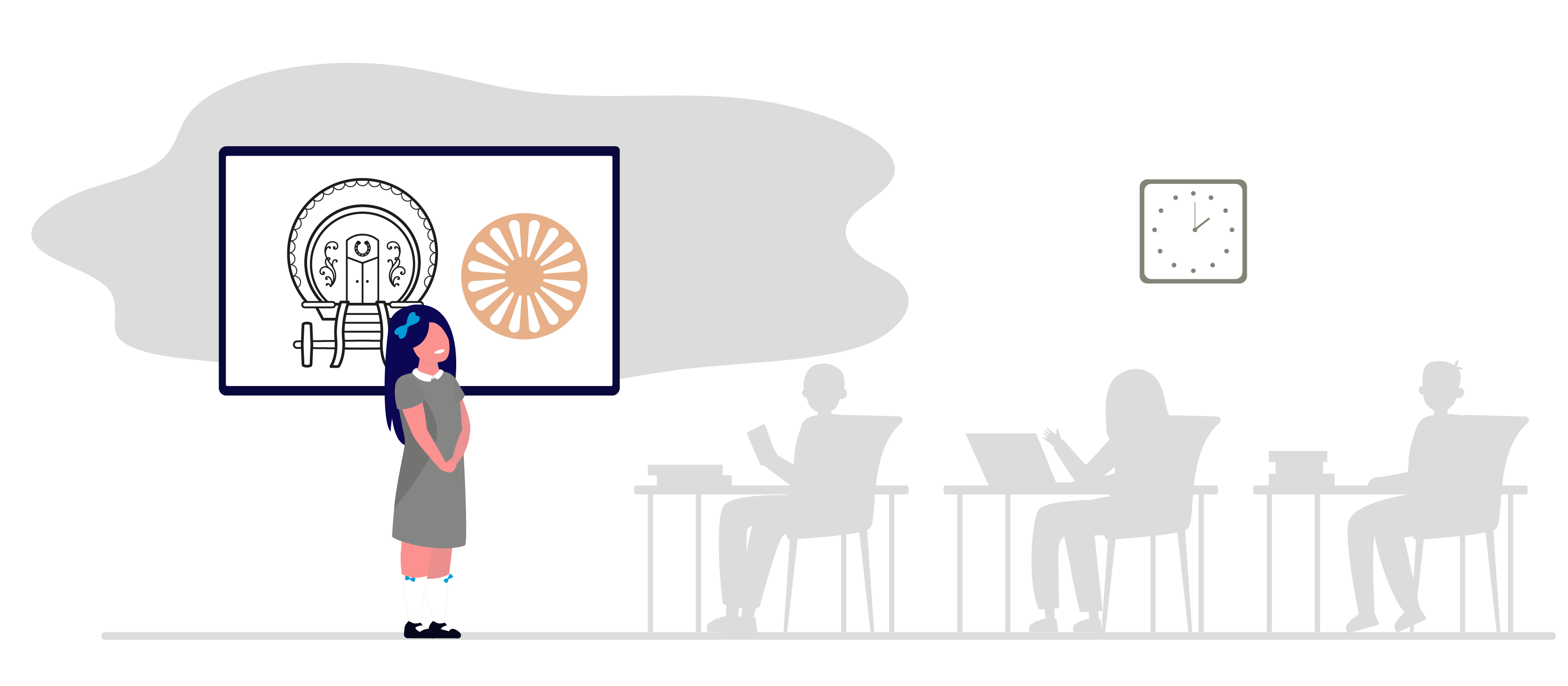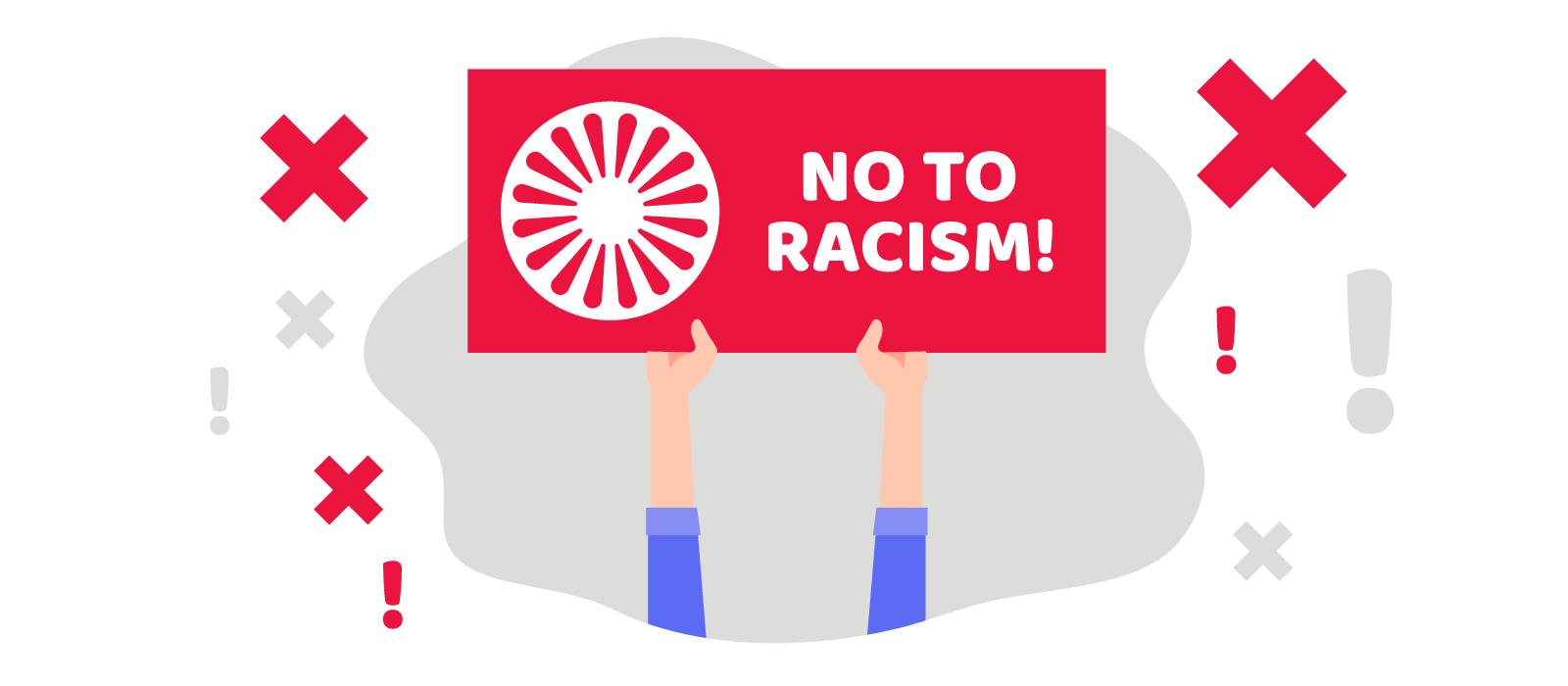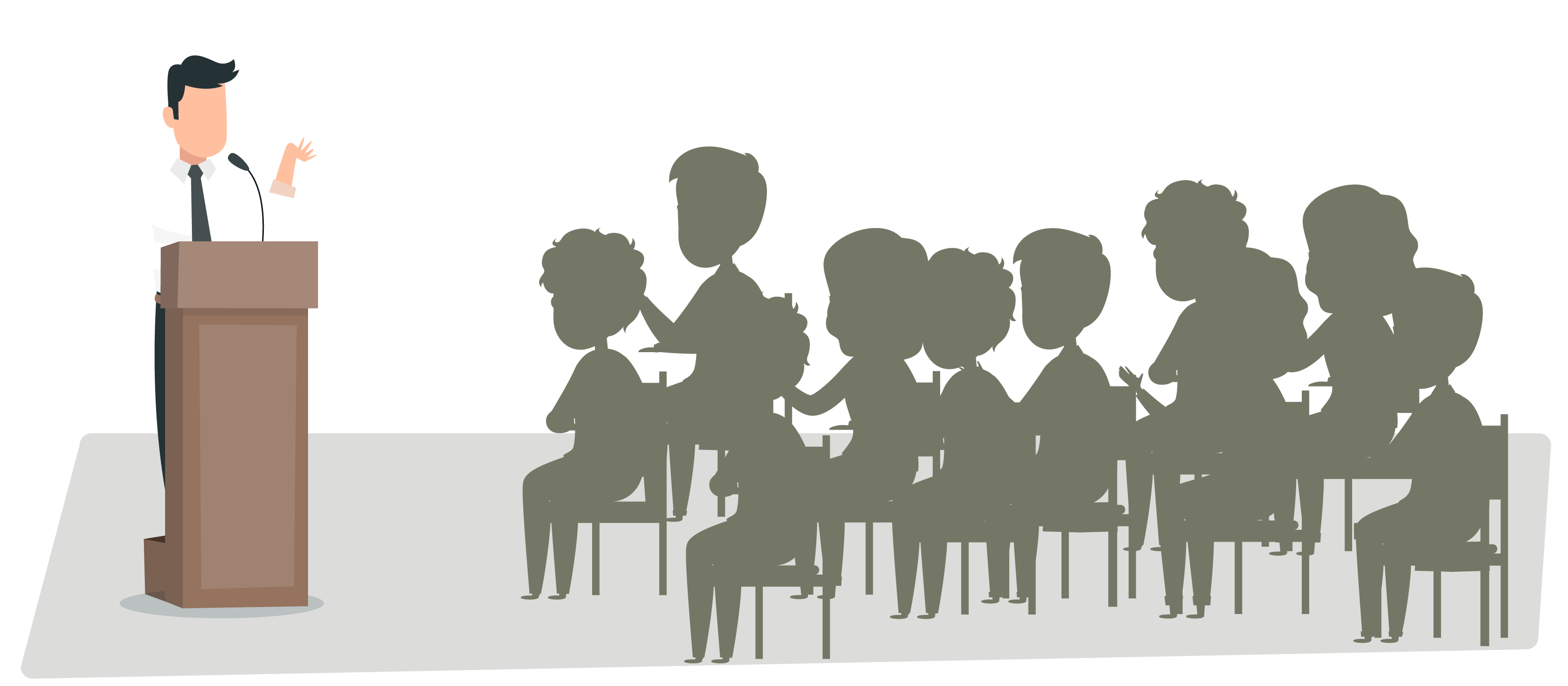Lesson Plans & Resources
Cultural value
Inclusion of GRT culture supports children and parents to see that:
- this is a place where they belong
- this is a place where they are valued
- this is a place where they are safe, and where racism will not be tolerated
Having positive experiences of GRT culture and learning about GRT history helps all children and parents to question racism against Travellers.
These factors are essential when including GRT culture.

Displays
Displays should include links to Traveller culture and interests wherever possible. For example, displays or symbols used to represent ‘home’ should include all types of home, including mobile homes and trailers (caravans).
During GRT History Month or in any other months, create displays with the children’s involvement, focusing on aspects of GRT culture and history.
Ask parents and children for help with creating displays.
Resources
Resources should reflect the interests and history of Traveller culture, as well as the individual interests of the children. Domestic role play resources should feel familiar to Traveller children and their parents.
Common cultural interests include:
- practical activities
- physical activities
- problem-solving activities
- vehicles, including quadbikes and flatbed trucks used for work, horseboxes and trailers (caravans)
- real tools
- fixing and building
- gardening
- housekeeping
- floristry
- hair and make up
- animal care, especially horses and dogs
- opportunities to support younger children
- relating to older children and adults
- taking responsibility for particular jobs.
Curriculum
There are many opportunities within the curriculum to include Traveller cultural images and to learn about aspects of Traveller history and culture.
Everyday exchanges

Show parents and children that you are interested in their culture and heritage through everyday conversations. Many people hold back for fear of offending or saying the wrong thing, but the only way to learn about the culture is to show an interest and ask questions. Parents and children welcome the opportunity for their culture to be understood.
Opportunities for children to share their experiences and expertise

When children are encouraged and supported to share their knowledge and experience, it gives a real insight into their unique strengths and cultural richness. Seeing and hearing about each other’s experiences supports respect and tolerance.
Through these opportunities, children and their parents learn that their voices and experiences are relevant and valued within the wider community.
Cultural understanding
It’s good practice for all staff, especially those working directly with families, to have an understanding of Traveller culture, including an awareness of:
- definitions of different Traveller groups, correct terminology and unacceptable racist terms
- Gyspy, Roma and Traveller history and language
- understanding and inclusion of Gypsy, Roma and Traveller culture
- preventing and responding to exclusion, bullying and racism
- Traveller homes and the fact that most Travellers live in houses
- reflection on data relating to health, education and socio-economic factors
- building trust and engagement
- supporting good attendance
Individuality
Stereotyping and assumptions can happen when there is little understanding of Traveller culture. While it is useful to have an awareness of Traveller culture, every family and individual is unique. There are cultural strengths and sensitivities that should be kept in mind, but the most positive engagement and attendance happens when parents and children are respected as individuals.
Bullying

Parents of GRT pupils have often experienced bullying at school. Please visit the bullying section for further information.
Racist incidents

All incidents regardless of intention or seriousness must be dealt with.
Find out more in our section on racism
Assemblies

Traveller history is an important part of British history. All pupils should have the opportunity to learn about it. They need to see the cultural strengths and rich history. They need to know about the difficulties that the Traveller community has faced in the past. This education supports them to see and challenge exclusion, prejudice and racism.
Powerpoint Presentations
Please contact us if you would like our PowerPoint slides with notes, designed to give a positive introduction to Traveller community at age-appropriate levels.
For Key Stage 1:
- Travellers and travelling
- Different types of homes
- Traveller homes
- Circus Families and Fairground Families (Showmen)
- Special cultural events
For Key Stage 2:
- Different groups of Travellers
- Identity and culture
- History of Romany Gypsies
- Romani language
- Traveller homes
- Special cultural events
